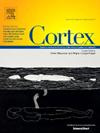Increase in slow frequency and decrease in alpha and beta power during post-learning rest predict long-term memory success
IF 3.3
2区 心理学
Q1 BEHAVIORAL SCIENCES
引用次数: 0
Abstract
Formation of episodic memories is linked to cortico–hippocampal interactions during learning, practice, and post-learning rest, although the role of cortical activity itself in such processes remains elusive. Behaviorally, long-term retention of episodic memories has been shown to be aided by several different practice strategies involving memory reencounters, such as repeated retrieval and repeated study. In a two-session resting state electroencephalography (EEG) experiment, using data from 68 participants, we investigated the electrophysiological predictors of long-term memory success in situations where such reencounters occurred after learning. Participants learned word pairs which were subsequently practiced either by cued recall or repeated studying in a between-subjects design. Participants' cortical activity was recorded before learning (baseline) and after practice during 15-min resting periods. Long-term memory retention after a 7-day period was measured. To assess cortical activity, we analyzed the change in spectral power from the pre-learning baseline to the post-practice resting state recordings. From baseline to post-practice, changes in alpha and beta power were negatively, while slow frequency power change was positively associated with long-term memory performance, regardless of practice strategy. These results are in line with previous observations pointing to the role of specific frequency bands in memory formation and extend them to situations where memory reencounters occur after learning. Our results also highlight that the effectiveness of practice by repeated testing seems to be independent from the beneficial neural mechanisms mirrored by EEG frequency power changes.
在学习后休息期间,慢频率的增加和α和β功率的下降预示着长期记忆的成功。
情景记忆的形成与学习、练习和学习后休息期间皮质-海马体的相互作用有关,尽管皮层活动本身在这些过程中的作用尚不明确。从行为上讲,情景记忆的长期保留已经被证明是通过几种不同的练习策略来帮助的,这些策略包括记忆的重新相遇,比如反复提取和反复研究。在一项为期两次的静息状态脑电图(EEG)实验中,我们使用了68名参与者的数据,研究了在学习后再次遇到这种情况下长期记忆成功的电生理预测因素。参与者学习了单词对,随后通过线索回忆或在受试者之间设计的重复学习进行练习。在学习前(基线)和练习后15分钟休息期间记录参与者的皮质活动。7天后测量长期记忆保持情况。为了评估皮质活动,我们分析了从学习前基线到练习后静息状态记录的频谱功率变化。从基线到练习后,α和β功率的变化是负相关的,而慢频率功率的变化与长期记忆表现呈正相关,无论练习策略如何。这些结果与先前的观察结果一致,指出特定频段在记忆形成中的作用,并将其扩展到学习后再次遇到记忆的情况。我们的研究结果还强调,重复测试练习的有效性似乎独立于脑电图频率功率变化所反映的有益神经机制。
本文章由计算机程序翻译,如有差异,请以英文原文为准。
求助全文
约1分钟内获得全文
求助全文
来源期刊

Cortex
医学-行为科学
CiteScore
7.00
自引率
5.60%
发文量
250
审稿时长
74 days
期刊介绍:
CORTEX is an international journal devoted to the study of cognition and of the relationship between the nervous system and mental processes, particularly as these are reflected in the behaviour of patients with acquired brain lesions, normal volunteers, children with typical and atypical development, and in the activation of brain regions and systems as recorded by functional neuroimaging techniques. It was founded in 1964 by Ennio De Renzi.
 求助内容:
求助内容: 应助结果提醒方式:
应助结果提醒方式:


